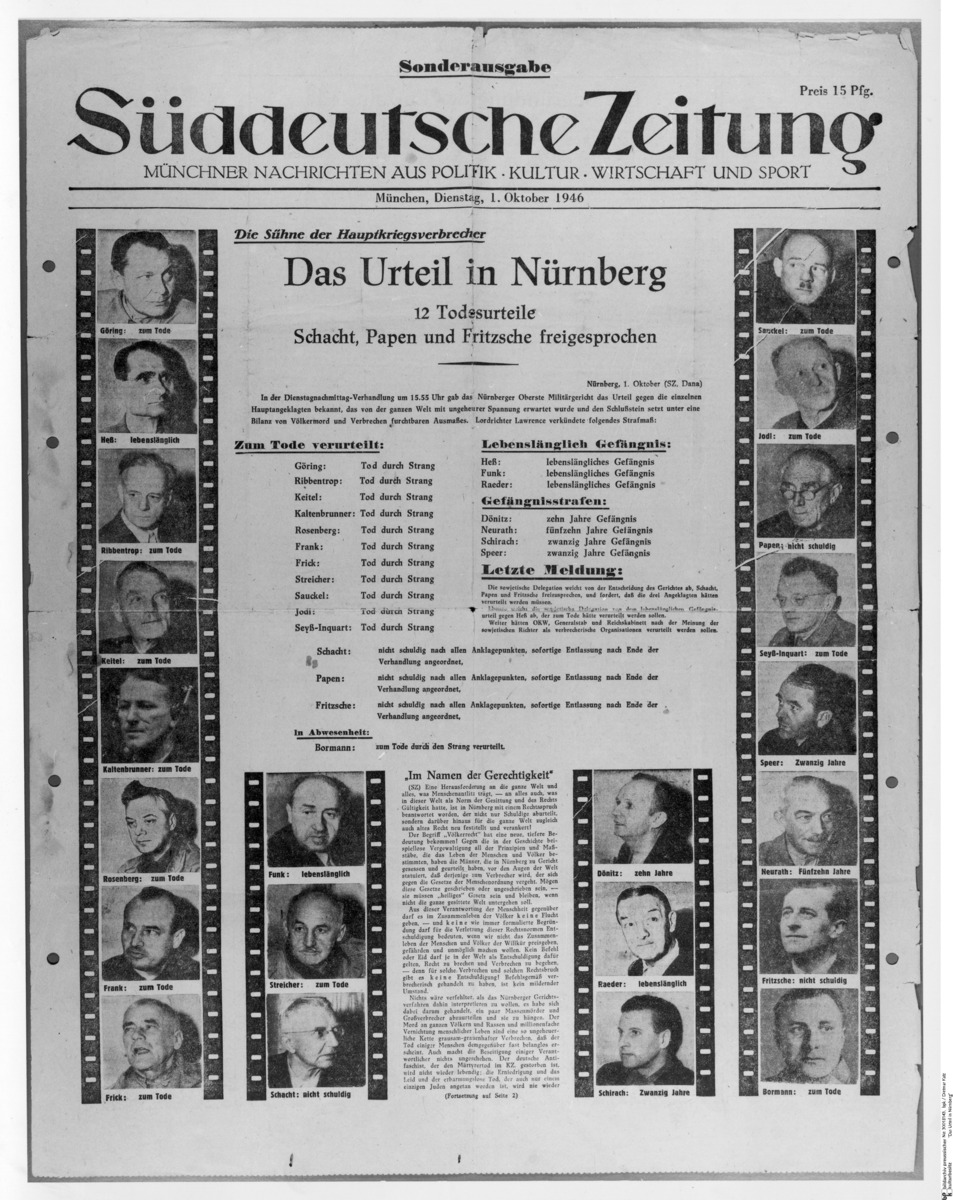Abstract
On September 30 and October 1, 1946, the International Military Tribunal delivered verdicts for the organizations and leading individuals accused of criminal acts during the Nazi regime. Five of the organizations on trial were deemed criminal: the leadership of the NSDAP, the Gestapo, the SS, the SD, and the SA. The Army General Staff and the government were cleared of charges in general terms. Death sentences were given to Martin Bormann (in absentia), Hans Frank, Wilhelm Frick, Hermann Göring, Alfred Jodl, Ernst Kaltenbrunner, Wilhelm Keitel, Joachim von Ribbentrop, Alfred Rosenberg, Fritz Sauckel, Arthur Seyß-Inquart, and Julius Streicher. The following were sentenced to imprisonment: Karl Dönitz (10 years), Walther Funk (life), Rudolf Heß (life), Konstantin von Neurath (15 years), Erich Raeder (life), Baldur von Schirach (20 years), and Albert Speer (20 years). Defendants Hans Fritzsche, Franz von Papen, and Hjalmar Schacht were acquitted. The Soviet judge Iona Nikittschenko had demanded the death sentence for all the accused. Most members of the German public recognized that, because the defendants received separate verdicts based on their varying degrees of individual responsibility and guilt, the trial could be described as fair.
